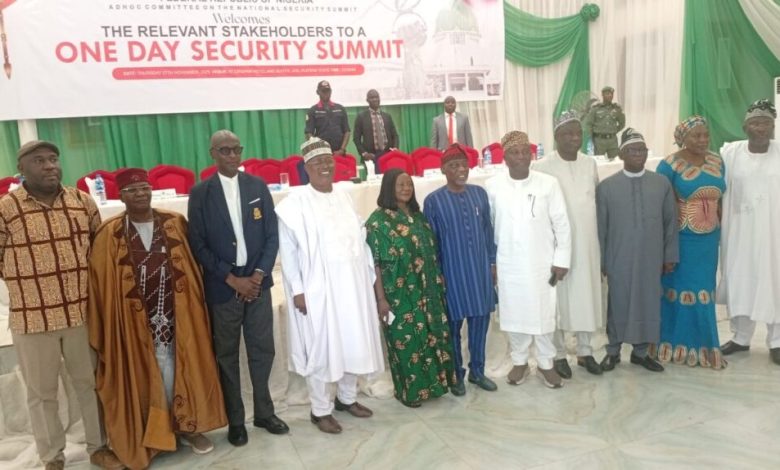
The Nigerian Senate on Thursday held a crucial security summit in Jos, Plateau State, aimed at confronting the escalating wave of violence that has gripped communities across the North Central region.
The meeting brought together lawmakers, state officials, security agencies and community stakeholders, all seeking urgent answers to the worsening insecurity.
The North Central zone—covering Plateau, Niger, Benue, Nasarawa, Kogi and Kwara—has endured years of attacks, displacement and loss of lives.
Plateau State has been one of the hardest hit, with hundreds of communities overrun and thousands killed in recurring waves of violence over the last decade.
Senator Abba Moro, who led the Senate delegation, stressed that the fight against insecurity must no longer be viewed as the responsibility of a single institution.
He called for an approach that involves citizens, government institutions and non-state actors working towards the same goal.
“National security is a shared responsibility. It does not rest solely on the military or security agencies,” he said, warning that the scale of destruction caused by insurgency, banditry, militancy and kidnappings demands a unified national response.
Moro explained that the summit was organised to generate “practical and actionable solutions” drawn from people who experience the crisis directly—victims, traditional rulers, community leaders, civil society groups and experts in conflict resolution.
According to him, their contributions will guide the Senate in shaping laws, budget plans and policy reforms to strengthen the country’s security structure.
“Please be assured that the input gathered today will shape the recommendations we submit to the Senate, guiding legislative interventions, budgetary priorities and policy reforms to strengthen our national security framework,” he added.
The senator noted that the resolutions arising from the summit would help lay the foundation for a more effective and long-term national security strategy.
He also pointed out that communities must improve their alert systems, state governments should enhance local security networks, the private sector needs to support preventive initiatives, and the Federal Government must intensify reforms within defence and security institutions.
Plateau State Governor, Caleb Mutfwang, represented by his deputy, Josephine Piyo, lamented the devastation suffered by residents.
He attributed a significant number of the conflicts to competition over land, population pressure, political rivalry and criminal opportunism.
The governor also appealed for an end to the culture of blame and divisive narratives that have prolonged the conflict.
“It is time to stop pointing fingers and comparing who has lost more lives across religious or ethnic lines,” he said. “It is time to unite, join hands and confront this demon.”
Governor Mutfwang praised the Senate for taking the conversation directly to the affected zone, describing the gathering as an important step toward restoring peace and rebuilding trust among residents.
The one-day summit featured security professionals, traditional institutions, academics, youth organisations and various interest groups.
Their final recommendations are expected to influence immediate actions and long-term policies aimed at stabilising the North Central region.
